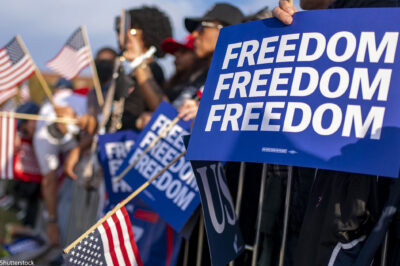
For how many days did law enforcement use a Maryland man’s cell phone to track his location without a warrant?
Politicians in which state are pushing an anti-abortion bill that could bring the number of abortion providers in the state from 42 down to 5?
True or False: photographers have the right to film police officers.
What law allows the NSA to target innocent Americans and retain their communications?
How many prisoners (including former New England Patriots athlete Aaron Hernandez) are exposed to the debilitating psychological effects that arise from solitary confinement?
Fighting a Striking Case of Warrantless Cell Phone Tracking
The Fourth Circuit Court of Appeals is currently considering a case that could be pivotal in determining whether the government needs a warrant to track your cell phone. This week, the ACLU, together with the ACLU of Maryland, Center for Democracy & Technology, Electronic Frontier Foundation, and National Association of Criminal Defense Lawyers, filed an amicus brief arguing that the Fourth Amendment requires the government get a warrant to find out everywhere a person has been for the past seven months. In the case, United States v. Graham, the government obtained a staggering 221 days of historical cell site location information for two suspects. For one suspect, Aaron Graham, this timespan allowed the government to sweep up his location at 29,659 specific points.
Stand with Texas Women
Last week, when Wendy Davis stood for over 13 hours to filibuster a sweeping anti-abortion bill, some suggested that Davis is a modern Wonder Woman. Millions of us watched - proud, inspired, awestruck - into the wee hours of the morning last week, as advocates for women's health stood up for the women of Texas.
And we did it - we won for a short time. But it's time for us to stand up again. Governor Perry called another special session that starts this week, and the bill that threatens to shut down most every abortion clinic in the state is on the agenda.
Police Harassment of Photographers Remains a Problem
It’s been nearly two years since the First Circuit Court of Appeals held that the right to film police officers is protected by the First Amendment and that, moreover, that principle is so “fundamental and virtually self-evident” that it should have been known to the police even before the court’s ruling. That ruling was only the most prominent—courts around the country have been pretty much unanimous in finding such a right.
Yet the problem persists.
The NSA's Spying On Americans: Not As "Inadvertent" As It Claims
Another week, another trove of documents detailing the inner secrets of the NSA's massive spying program. Recent revelations have finally provided a look at the procedures that the NSA uses to target and retain communications under the FISA Amendments Act (FAA). As my colleague Brett Max Kaufman wrote even before this latest batch of news broke, officials have been using the word "target" in very misleading ways to repeatedly reassure the American public that the law only applies to foreigners abroad, and does not permit the NSA to listen in on Americans' phone calls or read their emails.
Aaron Hernandez Is Now Locked Alone Inside a Room the Size of a Parking Spot
Following his well-publicized arrest, former New England Patriots star Aaron Hernandez is now living in a much less public place. Hernandez was recently placed into "protective custody" —one of the many names for solitary confinement.
Regardless of what you think of Aaron Hernandez, it's important to take a minute and remember he has not yet been convicted — in the eyes of the law, he is still innocent until proven guilty. But, while awaiting trial, he has been locked alone in a small room with little or no human interaction for over 20 hours a day.
Sadly, what's happening to Hernandez is not a rarity in our criminal justice system. There are more than 80,000 prisoners in solitary confinement across the country. They remain isolated for weeks and sometimes years on end, often without the press attention Hernandez's case has gotten.
Learn more your civil liberty issues: Sign up for breaking news alerts, follow us on Twitter, and like us on Facebook.




